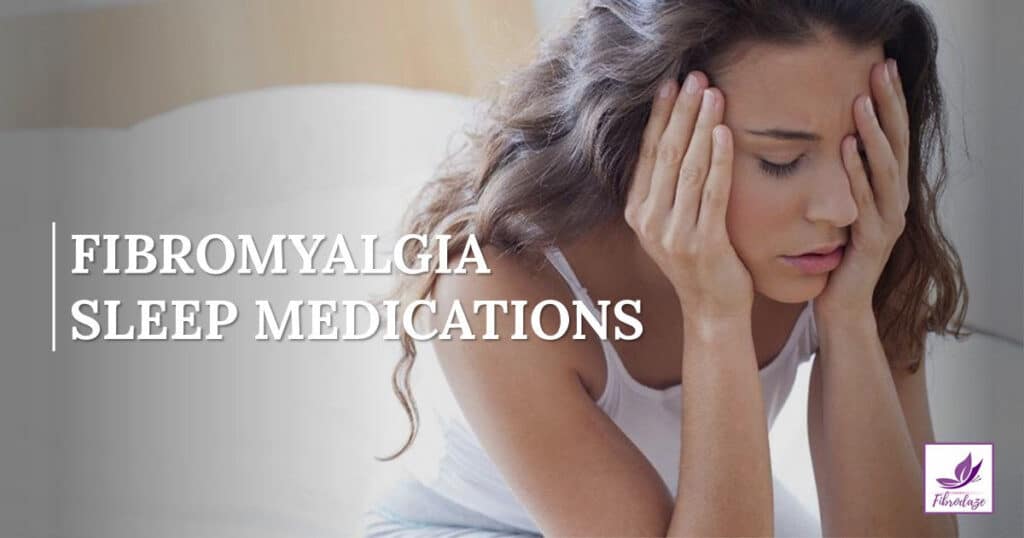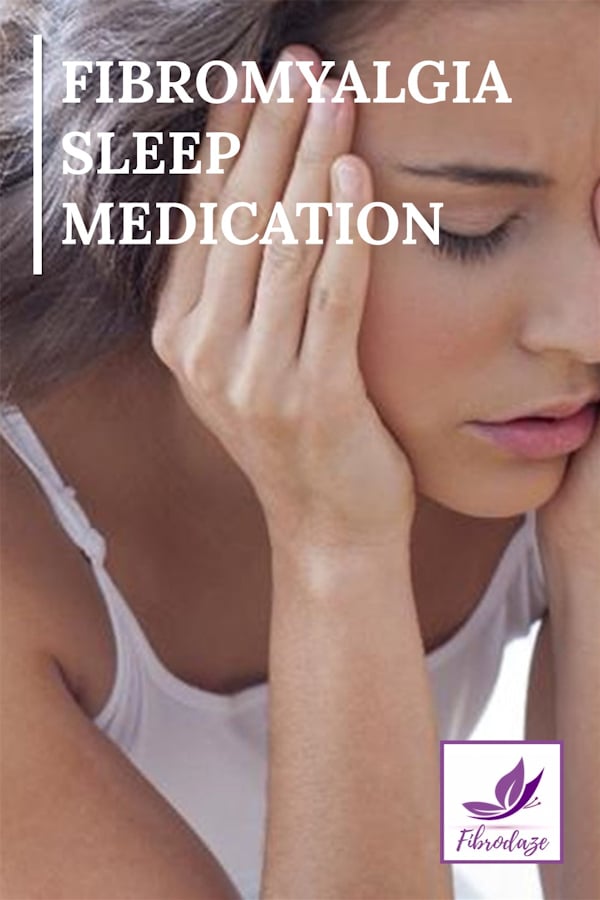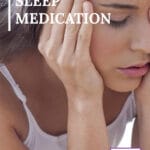Sleep Medications: Improving Sleep When You Have Fibromyalgia
Disordered sleep is a prominent symptom in fibromyalgia. More than 90% of patients with FMS describe poor quality of sleep. In fact, fatigue and waking unrefreshed are part of the diagnostic criteria.

Disordered sleep is the underlying process that drives many of the symptoms of FMS. The best way to eliminate fatigue, pain and mental fogginess is to get seven to nine hours of deep sleep each night. If you are still not sleeping after improving sleep hygiene and trying natural remedies, you may need sleep medication.
It’s important that whatever sleep medications you use to increase the duration of sleep and also improve the deep stages of sleep. Unfortunately, many sleep medications may actually worsen the quality of sleep. Some medications increase the amount of light-stage sleep and decrease deep stages of sleep.
You want to be sure the sleep medications you use to leave you feeling better, not worse.
Types of Sleep Medications
There are a number of different types of sleeping medications available.
- Antihistamines – Antihistamines are used to help relieve allergy and cold symptoms. Most over-the-counter sleep aids contain antihistamines because they cause drowsiness. While antihistamines may help you to fall asleep, overall sleep quality is usually not very good. Sometimes, they even have the opposite effect and cause hyperactivity. Tolerance to the sedative effects of antihistamines can develop quickly. The longer you take them, the less likely they are to make you sleepy. Side effects include daytime drowsiness, dry mouth, dizziness and memory problems. Antihistamines are not recommended for people who have closed-angle glaucoma, asthma, chronic obstructive pulmonary disease, severe liver disease or urinary retention.
- Benzodiazepines – Benzodiazepines work quickly to put you to sleep and keep you asleep. However, they worsen sleep quality by increasing light sleep and decreasing deep sleep. Examples of benzodiazepines are Ativan (lorazepam), Klonopin (clonazepam), Valium (diazepam) and Xanax (alprazolam). They are for short-term use because they can be habit-forming. Side effects can include headaches, nausea, confusion, dizziness and drowsiness, depression, and many more serious problems. Benzodiazepines are commonly abused and easily overdosed.
- Nonbenzodiazepines – Ambien (Zolpidem), Sonata (Zaleplon) and Lunesta (Eszopiclone) are examples in this newer class of medication. They are referred to as the Z drugs. They cause the onset of sleep to occur faster and allow for a longer period of sleep throughout the night. The Z drugs reportedly maintain deep stages of sleep. These drugs are claimed to have less potential for addiction than Benzodiazepines. Although, the evidence is mounting that they share the same potential for dependence. Some people using these drugs have also experienced hallucinations, worsening of depression and even thoughts of suicide. In addition, these drugs can cause memory loss, and behavioral changes such as less inhibition, more aggressiveness and uncharacteristic extroversion – effects similar to drunkenness.
- Sedating Antidepressant – These sedating antidepressants most commonly used to help with sleep include Amitriptyline (Elavil), Doxepin (Sinequan) and trazodone (Desyrel).
- Amitriptyline is a tricyclic antidepressant. It was developed in 1960 to treat depression, although it is rarely used for this nowadays. Now it is commonly prescribed for fibromyalgia. Amitriptyline promotes deep sleep, eases chronic pain and helps prevent headaches. Common side effects include dry mouth, dizziness, fatigue, and weight gain. These side effects tend to go away after a few weeks. Geriatric patients are particularly sensitive to side effects such as; increased heart rate, urinary retention, constipation, dry mouth, blurred vision, and exacerbation of narrow-angle glaucoma.
- Doxepin is also a tricyclic antidepressant. It is used for treating depression, anxiety, and insomnia. Insomnia is treated with 3 to 6 mg daily taken 30 minutes before sleeping. In patients 65 and older, Doxepin can increase the duration of sleep. However, it does not significantly decrease the time to sleep onset. It is less effective in younger adults. Doxepin is safe when used at low dosages.
- Trazodone is a tetracyclic antidepressant. It has anti-anxiety and sleep-inducing effects. Trazodone is especially effective for people with sleep disorders due to depression and/or anxiety. While it does not help you fall asleep, Trazodone helps maintain deep-stage sleep. Trazodone does not cause the same degree of dry mouth or weight gain as some sedating medications do. Also since Trazodone does not reduce respiration, it does not aggravate sleep apnea. The most common side effects may include headache, nausea, vomiting, diarrhea, weakness, and nervousness. Some side effects will lessen over time.
Antidepressants are not habit-forming. But, if you quit taking them abruptly, withdrawal symptoms can occur. Tapering down your medication gradually under the supervision of your health care provider can help avoid this.
The hypothalamic sleep disorder in CFS/FMS is usually too severe to be dealt with by any single prescription or natural remedy. What works best is to mix these until you find a combination that gives you eight to nine hours of solid sleep a night without a hangover. The natural remedies can decrease the amount of medication you need, and therefore: the cost and side effects.
From Fatigued To Fantastic, Dr. Jacob Teitelbaum
My combination of prescription sleep medication and natural remedies are Amitriptyline with melatonin. I also take magnesium. Better sleep hygiene and the right bedtime snack helps, too.
What about you? Do you have trouble sleeping? Have you found anything that helps you sleep?
Pin for Later






I have good nights and bad nights. I use Med MJ because it is legal in our state. I just read the article you mentioned and I think I will take in the evening to see if it helps. Thank you.
Hi Jan,
I hope it helps. Let me know if it does. Med MJ is legal here now, but I don’t think it easy to get just yet.
Sue,
Here we are able to grow six plants for our own use if we want. I was able to make my own tincture and generally use three to four drops in my coffee in the morning and the same in tea in the afternoon. There are dispensaries in Maine as well.
That would be great if we could do that in IL. I live in a rural area and I don’t know how long it will be before there are any dispensaries close to me. I will have to check the laws here.
Another useful articles, thanks. I recently trialed being off amitriptyline and it ruined everything! Amitriptyline helps me to get to sleep, but I sleep so restlessly, melatonin doesn’t work. Do you have any other ideas that you can mix with amitriptyline?
Thanks, Melissa. I don’t what I would do without amitriptyline. Melatonin doesn’t work for me on its own. I read a few studies that when melatonin is combined with amitriptyline it helps fibromyalgia pain so I wanted to try it. Not sure if it helps with the pain, but I so sleep well. Passionflower or valerian tea might help. Valerian gives me a headache, passionflower doesn’t. Passionflower is a calming herb and helps me with the restlessness.